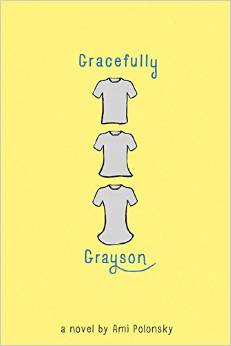 It is never easy writing fiction based on sensitive topics that polarise people’s opinions in real life. There are just so many elements to take into consideration. One is the fear of adding ambiguity to an already misunderstood subject and another is to end up dictating to the reader expected ethical and moral behaviours instead of allowing them to struggle, think, pose questions and come up with solutions based on their own perspective of the scenario in hand. The situation is further complicated when a particular work of writing is aimed at young readers addressing what many may consider ill-advised issues better left alone, which means that these subjects are less likely to have ever been discussed with parents, peers and educators regardless of whether the young reader is aware of them or not. So, a thorny question here would be: how does one present such work which, regardless of message, steers clear from off-putting, moralistic preaching as well as removes the stigma associated with airing such topics out in the open which will bridge the way for constructive discourse and ultimately more social awareness of pressing topics. Ami Polonsky’ s main character, Grayson, in her recent novel ‘Gracefully Grayson’ (out November 4) is a lonely, confused sixth-grader who lives with uncle Evan (dad’s brother), and his wife Sally, cousin Jack, and brother Brett. Grayson’s parents are dead. As life-altering an experience such as this is to contend with for any child, Grayson’s life is further complicated by a secret that consumes this child’s everyday life, dominating all thoughts and crippling any ability to fit in with classmates at school or even communicating with the once-friendly cousin, Jack, at home. The secret? Although born a boy, Grayson feels trapped in a body he does not want. With daydreams of how life as a girl could be, he is ridden by both happiness at the prospect that his dream may one day become reality and an acute feeling of dread that he will be ridiculed and judged. Events at home and a major one at school instigate a series of actions that will change not only Grayson’s life forever but also the lives of all those near and dear as they are forced to deal with the very taboo, very misunderstood subject of Gender Dysphoria. Ami Polonsky proves she is a worthy writer who has done her research well. I can find no more accurate, consummate adjective than ‘graceful’ when I tell people about this touching, beautifully written little book. A novel brimming with characters that are not only believable and well rounded yet are continuously growing and evolving. Polonsky manages to deal with all her characters with sensitivity and wisdom and when harsh judgments and stereotyping unavoidably break through to the surface she is sure to avoid sensationalism. A book of heroes. Expected publication: November 4, 2014 by Disney-Hyperion Check out Ami Polonsky's website HERE
0 Comments
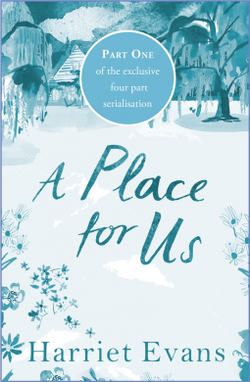 Martha and David Winter have raised their three children, Bill, Daisy, Florence and grandchild, Cat, in an idyllic home in Somerset named Winterfold. A ‘gentle, honest house, every inch of it made with care, refashioned with love’. All Martha and David had ever wanted was to ‘make a home, a place unlike their past. To give their children a childhood that would stay with them. To work hard, together. Be happy’. However, it is now, after forty-five years of living at Winterfold and on the occasion of her upcoming 80th birthday, that Martha has taken the decision ‘to tear her family apart’. Martha’s husband, David, the famous Wilbur cartoonist, has just gone down to London to presumably discuss the details of an upcoming exhibition, and Martha sits down to write the invite to her far away children and grandchildren requesting their presence at Winterfold for the two day birthday celebration in November. A day to include drinks with family and friends and a lunch the next day for ‘family only’ at which a ‘important announcement’ is to be made. Martha’s cryptic message sets in motion a series of events that take on a domino effect. Unknown to Martha, she is not the only Winter with a secret. Her invite, once in the hands of its recipients, conjures up the past of long-ago buried memories and threatens the exposure of personal secrets best kept concealed; Secrets if revealed would shatter not only the lives of the Winters themselves but those closely associated with them as well. Matters are not helped when Lucy, Martha’s granddaughter, decides to write a piece about the family history, for the daily tabloid she works for. Understandably, none agree to co-operate, each for their own reasons. The core of the story revolves mainly around the Winter’s middle child Daisy. All we know about her is that she is the inspiration for David’s children’s series ‘Wilbur and Daisy’ and that she fell pregnant at a very young age, only to abandon her child soon after preferring to help the less fortunate in India. It is evident early on in the novel, from the only chapter about her written as a diary entry when she was eight years old, that she is a very troubled character, unpleasant and mean to her brother (called him Billy Lily) and her two sisters especially Florence who she not only wanted to get rid of but blamed for moving to Winterfold, a place she hated from the very beginning. A dark character, ‘accidents’ have been known to occur when she is around. Her only loyalty is to her dog Wilbur whom she ‘loves more than anyone else in the whole world’. What we do know for sure though, is that it is the idea that Daisy will be present at the gathering that is setting everyone on edge. The Winter children are coming home except for Bill who never left Somerset choosing to remain close to his parents working as the town doctor. His second wife, Karen, has a secret of her own and wonders whether Martha has caught her out. She is after all, having an affair. Florence, now fifty, is a professor of art working in Italy. She will embark on the journey that has taken her twenty years to make to face her fears, realising with dread that she might know why her mother has summoned all of them back. Cat, a once promising fashion journalist is now penniless, ‘selling potted plants’ in a flower market in Paris. She is coming home too. But is it all too late? And what will her family think of this ‘different Cat now, the one she had always secretly feared becoming? A Cat who when doors bang she jumps. Will she be forced to reveal her secret too? And then there is Joe, the chef that Martha has hired to cater for the celebration. Somehow he has found himself caught up unawares with the Winters. Bill saves his life (or finger more like it), Lucy, Bill’s daughter has a huge crush on him and all the time he is desperately missing his son Jamie, who lives with his ex-wife and her new wealthy boyfriend. In this first part of the series Harriet Harman lays the foundation for a very promising, thrilling mystery novel. The characters are very engaging and it is easy to see readers choosing favourites early on. I know I have. And I know one more thing that is certain to happen too: Once you start reading you won’t want to stop. Why? Because the Winters have a way in which ‘they pulled you all in, all of them, without stopping to ask if you wanted to – it was crazy, charming, discombobulating’. I couldn’t agree more! Bring on the next part I say! 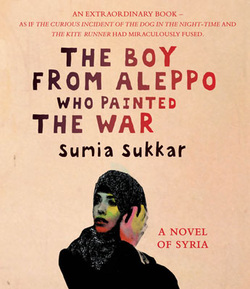 This is the story of Adam, a fourteen-year-old boy from Syria suffering from Asperger’s Syndrome. Living in Aleppo with his father, sister and three brothers (triplets) we meet Adam at the start of the country’s civil war. A war, according to Adam, that is ‘unfair’ with ‘no uniforms or clues’. The streets, once filled with the sounds of playing children are now empty and everything looks dusty. People hide, wary, cafes are abandoned and empty. Adam, due to his condition, lives cocooned in his little world following patterns that allow him the most comfort and in which he can better cope with the people around him. Adam is naïve to the ways of the world, awkward in the presence of strangers and only leaves the house on a school day. He enjoys TV, and reading but as most people with this syndrome, he develops a passionate, intense, almost obsessive interest in painting. Unable to translate his emotions, due to his condition, he sees the world through a wide range of color tagging each event, emotion and person with a specific hue. His brother Khalid is orange, Tariq is teal and Isa is green and ‘that’s how I can tell them apart’. As color is important in Adam’s life so it follows that the reader will get a sense of the atmosphere regardless of the fact that the narrator is of limited communicative skills. Adam narrates in a simplistic, even childish manner, yet the imagery he conveys is loud and clear, penetrating and resounding. He manages to draw a picture of the loss, the death, the carnage, and the mayhem of civil unrest. He loses family, friends, and those who he relies on for his survival. He recognizes the need for change and wills himself to adjust, succeeding at times, failing more often and it is tormenting to see such innocence trying to survive the most brutal of times. This is a tragic story about war, loss and death with many many instances of gruesome, disturbing scenes of abduction, rape, and executions. An upsetting book that mirrors the ongoing plight and reality of the people of Syria and what innocent civilians are having to go through on a daily basis with no end in sight. ‘I have the urge to paint and I can already see the painting in my head. Two young boys lying in the water with their bodies spread open, free, but their faces disfigured, burnt. It would be a black-and-white painting with the faces a spectrum of colors. It’s going to be horrible and beautiful all at the same time.’ - Adam Author Sumia Sukkar is a 21-year-old British writer of Syrian-Algerian ancestry. She grew up in London. This is her debut novel. 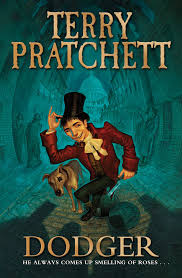 By gosh, it really was freezing last night with temperatures dipping to -3 (that's what my phone seemed to show anyway)! So with the heater barely able to keep up, it really was the best opportunity to ditch all fashion sense and layer up with woollies mostly 'borrowed' from hubby. Two jumpers and two layers of socks later, I am as happy as a bunny all snuggled up in bed with Terry Pratchett's fantastic book 'Dodger'. I'd got into bed so early that I actually managed the entire book in one go and what do I think? Fun with a very capital F. Now that's a word I haven't used to describe a book for a quite a while now. So, I shall say it again: it was was pure fun and joy interspersed with wit, philosophy and good old fashioned charm. As you may all well know, Dodger is the character in Charles Dickens' novel 'Oliver Twist'. He's the cheeky lad with the tophat who finds Oliver and teaches him (unsuccesfully) the art of the pickpocket. The novel is written true to the Victorian setting and is complete with an appearance from Charles Dickens himself who appears as Mr. Charlie, the journalist with an eye for a good story and the heart of a philanthropist. In essence this book is about Dodger but it is also about Dickens and the characters he bumps shoulders with in Victorian London and who he was to base several of his novels' characters on. We have Todd Sweeney (aka the Demon Barber) and a conspicuous Jewish jeweller by the name of Solomon who isn't what he seems and is somehow Dodger's guardian offering him a place to live and cooking his meals. He is the closest to the character of Fagin in the novel 'Oliver Twist' by Charles Dickens. We are first introduced to Dodger doing what he does best: Scouring the filthy sewers of London in search of money and anything that the London streets spit out. And on the night we meet Dodger, "the drains and sewers were overflowing, throwing up- regurgitating, as it were - the debris of muck, slime and filth". At this moment, a woman hurtles herself out of a moving carriage screaming. Dodger who has just appeared literally out of the gutter comes to the rescue and upon doing so meets Mr. Charlie and Mayhew who also come to the assistance of Dodger and the girl Simplicity. The assailants 'take to their heels' and manage to get away. This is a deceptively easy book to read. On the face of it, the book has a very easy plot to follow that is quite straight forward with a mystery to boot. But on a more serious note, the book also sheds light on the machinations that were taking place in London during that period that were to instigate the beginnings of social reform and the awareness of the British government as to the miserable conditions of the poor thanks to the work of people such as Dickens and Henry Mayhew, among others. A really good read that you must have a go at yourself. Why? because everyone knows the Dodger and you don't want to be the one left out. Do you now? 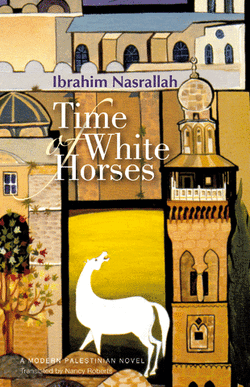 It's been six years since the International Prize for Arabic Fiction (IPAF) crowned its first winner, Egyptian writer Bahaa Taher, for his book 'Sunset Oasis'. Managed in association with the Booker Prize Foundation in London this award is a big deal for Arab authors. Not only do those on the shortlist find themselves $10,000 better off (the winner receives an additional $50,000) but the more important gain is the jump in book sales the authors can look forward to enjoying thanks to the exposure their work receives. More importantly the IPAF has fulfilled a key promise: to translate quality Arabic literature into other languages. All prize winners and even many on the short and long list have been secured translations with various publishing houses in the America, Asia and Europe. One such translation is of a book by Ibrahim Nasrallah, 'Time of White Horses' which was shortlisted for the IPAF in 2009 and which hit shelves in its English translation last year. 'Time of White Horses' is the story of Palestine before the establishment of Israel in 1948. The novel, translated by Nancy Roberts, is divided into three books: Book One is Wind, Book Two: Earth & Book Three: Humankind. It has been twenty years in the making and although a work of fiction it is footnoted when certain parts are based on real historic accounts obtained by the author from witnesses who after 1948 had 'been uprooted from their homeland and had gone to live in exile'. Sadly many died never having seen their homeland again. The novel follows the life of the family of Haj Mahmud and his son Khaled who live in the fictional village of 'Hadiya' -which means Peaceful- first under Ottoman rule and later under the British mandate right up to the 1948 war when the village is wiped out and the land annexed to Israel rendering the villagers homeless and destined to a life spent in refugee camps dreaming of a day that never arrives. Nasrallah himself was born and raised in the Wihdat camp in Jordan. In Book one we are introduced to Hadiya village, to the mare Hamama and to various village characters as well as to some living in the neighbouring areas. We meet Habbab, a psychopath of sorts who in the early pages seems to disappear (probably with the Turkish army) only to come back wealthier, stronger and meaner still. His main enemy is the village elder, Haj Mahmud himself. Indestructible, he finally meets his match when he marries his third wife Rayhana and his story reads like one from a Thousand and One Nights. We are introduced to al-Barmaki whose story of his son Ghazi's birth is the most comical yet towards the end of the novel proves to be one of the saddest twists of the book. Book one exhibits a simplicity, a lyricism even, which makes it read like an Arabian nights tale as author reminisces of customs long given-up and of a way of village life that has ceased to exist except in children's fairytales and bedtime stories. As things get more difficult for the villagers of Hadiya under British rule in the next two books so does Ibrahim Nasrallah's style of writing. The novel takes on a dis-organised, crammed even claustrophobic feel and by the end of it as life is slowly squeezed out of Hadiya the reader is truly feeling boxed-in already. The translator's brilliant command of the language creates a real picture of helplessness and despair that manages to jump off the pages of the book and grasp the reader firmly in its hold. A feeling that is very hard -nearly impossible- to shed and further compounded when the reader already knows that there will never be a 'happy' ending to this story. The story of Hadiya's monastery is a very interesting one and it is one that Nasrallah says is not only true but is the story of his village monastery. In the beginning Ottomans sold off Palestinian lands to the Greeks to sustain war with Turkey's enemies. However, by the 1920s things were tough on everyone and by the time the British Mandate was upon Palestine the Patriarchate was officially bankrupt. The British stepped in forcing the Patriarchate to sell off lands that they owned to the Jews who were returning after World War II to settle in Palestine. What is interesting to know is that in 2005 patriarch Irenaios (140th Patriarche of the Orthodox Church of Jerusalem) was deposed in the aftermath of a scandal involving selling of church land in East Jerusalem to Israeli developers. Land that the Palestinians were hoping would be part of the Palestinian State. Packed to the brim with an interesting cast of characters this novel is a serious powerful achievement. 'Time of White Horses' is testament that Arabic literature is well and truly a force that can easily hold its own on the international literary platform. When asked why he had written this novel in particular, Nasrallah answered it was so that the young would not forget and that the old would forever be remembered. It is said that to know oneself one must return to the root, and that is exactly what Nasrallah has done for a generation who has lived all its life far from a homeland it dreams of returning to. It is possibly a gentle reminder that those who do not remember the past are most condemned to repeat it. This is a story of remembrance, love, heartbreak, loyalty, betrayal, justice and greed. It is a story about family, honour and decency. A novel about courage, heroes, tyrants and doing the right thing. It is all of the above and much more but most and foremost I see it as a story of beginnings or a story of endings giving birth to new beginnings for George Santayana once said: 'We must welcome the future remembering that soon it will be the past, and we must respect the past remembering that it was once all that was humanly possible". An emotional roller coaster of a book with the hardback cover beautifully illustrated by Palestinian artist Tamam al-Akhal who I had the honour of interviewing for a TV show I was presenting around ten years ago. A great read particularly for those who enjoyed Rafik Shami's 'The Dark Side of love' or Naguib Mahfouz's 'Cairo' Trilogy this is not one you want to miss. 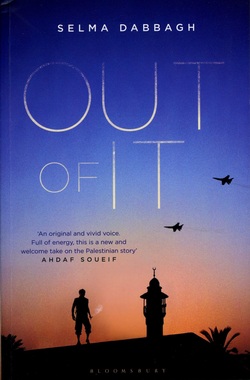 In 1993, following the Oslo Accord signed by Israel and the Palestinians, it was agreed that Israel Defence Forces (IDF) would withdraw from parts of the Gaza Strip and the West Bank captured in the 1967 war with the Arabs, and Gaza would be included in the territories of the Palestinian National Authority. In 2005, when Israel pulled out its final troops from the Gaza, it declared its occupation of that area as over. A fact disputed by the Palestinians because Israel still controls Gaza's land and water borders as well as its airspace. Two military factions inside Gaza, Fatah and Hamas, fought to gain control inside of Gaza (sometimes with deadly gun fighting and assassinations). In 2007, the Islamist militant group Hamas won the elections and in response, Israel to this day continues not only to impose severe restrictions from and into the city of Gaza but has carried out various military operations against Hamas claiming that it is protecting its borders and its inhabitants from Hamas' militant rocket shelling. Many civilian lives have been lost and casualties sustained on both sides in the process. It is during one such military Israeli bombing operation of Gaza (exact timeline not specified) that the novel 'Out of It' opens. Rashid, a twenty-something member of the Mujahed family is terrified out of his mind by the bombing that has struck a nearby hospital. Thanks to his cannabis plant 'Gloria' he eventually passes out stone cold under his bed. As he awakens with 'face and floor tiles sealed together by a membrane of spittle' and checks his emails he finds that he has managed to secure a one-year scholarship to London. As far as Rashid is concerned this opportunity along with the work at The Human Rights Documentation Centre he set up with his best friend Khalil to record the violations happening against Gazans mean one thing and one thing only: a one-way ticket out of Gaza. Iman, Rashid's twin sister, has just returned from studying in Switzerland. They are obviously a family with better means compared to other Gazans; their father (who now lives in Dubai with his Lebanese girlfriend) used to work for the Palestinian Authority when it was in exile. Already back for a year and teaching at a local school she feels that she is alienated by those who had not left during the occupation. She is desperate to be taken seriously to show how much she wants to help the situation in Gaza. After the night's bombing claims one of her students and his cousin (who she had a crush on) she blindly comes to a decision that could spell a disastrous outcome to everyone. Sabri is the family's older brother, who has lost his legs, his wife and his child in an attempted assassination. But, in spite of his losses Sabri, the weakest character physically in the novel, is by far the strongest. He seems to rise above his disability (confined to the family's top floor apartment with no lift) and to rise above his daily humiliations (his mother has to change his catheter daily) channeling all his energy to compiling information and documentation and writing a record of the Palestinians' struggle for freedom. Throughout, he holds on to the hope that peace and justice will one day be granted to the Palestinians. The novel is split into five parts. The first and fifth take place in Gaza, the second and fourth in London and the third in Dubai. We follow Rashid's life in London with Lisa where things don't turn out quite exactly as he had planned. In London, Rashid and Iman come face-to-face with notions of the Palestinians as a 'desolate and abandoned people' (neither of which Rashid feels) and of Israel as 'the most democratic country in the world' (which Lisa utterly refutes). Eventually, Rashid ends up arrested in a case of mistaken identity and ultimately has to leave London to return back to Gaza when his father will not pay for his tuition any longer. For the brief period that Rashid is there, Iman also joins him after spending a brief and disastrous time with her father in Dubai. In London, she meets Charles whose skin "was foreign and on it his sweat had the smell of wet potato peel." Iman, unlike her brother, does not lose sight of wanting to eventually return to Gaza after her temporary exile. She soon returns in the last part of the book and when Rashid questions her why when she could have stayed longer, she simply answers, "but I don't exist there" as if it were 'incredibly obvious'. In the novel it seems that everyone is trying to get out of something. The father who has decided that there really is no cause to fight and gets out of it to live a rich man's life in the Gulf. His girlfriend, a Palestinian from the Lebanon camps, trying to put as much distance between herself and the camps as possible. Rashid who just wants out of it: out of Gaza, out of the conflict and out of his Palestinian skin. Iman trying to 'get out' of the feeling of being an outsider in her own country and with her own people, the fighter Ziyyad Ayyoubi trying to get out of his parents' shadow to carve a destiny and legacy of his own. The mother (aka The Sparrow), Abu Omar, Lisa, and many others throughout the novel including carrot boy who is a terrifying personality born of the dire situation in Gaza. In the final part of the book Rashid has reached the ultimate truth: Gloria is dead, and he is trapped in Gaza. It is in this final utterly sad (at the same time strangely hopeful) part of the book that Rashid finds his own happiness and comes to terms with his life confident in the realization that he is finally free to choose his own way 'out of it'. Selma Dabbagh has managed to touch upon a lot of current Arab and Palestinian themes in her novel ingenuously avoiding over-crowding. A feat that is testimony to a very skilled writer indeed. Dabbagh shows supreme confidence in handling her characters and in the weaving of the various elements allowing the story to unfold and ultimately flow beautifully and with ease. This is a sensitive, gripping, compelling, powerful and assured novel. A beautiful story of love, tragedy and ultimately hope. I smell a sequel! For more on British Palestinian author Selma Dabbagh, click HERE. 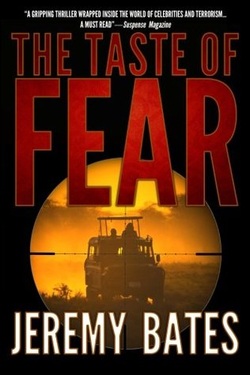 American actress Scarlett Cox and her billionaire husband Salvadore Brazza are abducted when on holiday in Tanzania to try and work out their marriage. The abductors, an Al-Qaeda cell, headed by Algerian-born Jahja al-Ahmad, are on a mission: Bomb the American Embassy in Dar es Salaam in their war against the Western 'infidels', secure hostages and demand the release of a bunch of their guys from American custody within 72 hours. Jahja's conviction of the righteousness of his brutality is rooted in the fact that he himself suffered irreversible facial deformation when a stray American cruise missile hit his hometown's residential area when on a visit to his parents in Algeria. His father perishes, he is forever deformed and his anger and hate against Americans (all Americans) is now cemented. Scarlett and her husband are in the wrong place at the wrong time and end up hostages in the calamity that ensues the bomb detonation along with two Embassy women and Australian Thunder who Scarlett has met in Tanzania after she parted ways with her husband after a major fight. Bound and gagged they are thrown in to a van and driven across the border to a safe-house in the Congo where things look bleak and it is obvious that escape is futile. If that were not enough to deal with, enter two characters: Irish assassin Damien Fitzgerald and Brazza's personal bodyguard, Israeli Danny Zamir. Both ruthless, blood-thirsty killers who will go to any length to get a job done. Damien (aka Redstone) is contracted by Don Xi (an ex-business partner) to kill Brazza. Worried that Brazza might make it out of the hostage situation alive if the abductors were to settle a deal with the negotiators he is adamant Salvadore dies in the African jungle. Having missed an opportunity to kill him once before he wasn't about to let it happen again. Ruthless bodyguard Danny Zamir an ex-military in the Israeli Defence Forces and the 'Sayeret Matkal', is equally resilient. Having dealt with Don Xi in the only way he sees fit, he is now anxious to get Brazza back home for the opening of his latest hotel chain in Dubai. He too heads to Africa intent on not failing his mission. 'The Taste of Fear' is jam-packed with twists and turns and hardly allows the reader the time to come up for air before being submerged into a new peril. The characters' criminal and intense backgrounds are quite daunting when they are revealed on their own, but it is when Bates allows the characters to share the same space that he manages to create the much anticipated high octane tension that the reader has been waiting for with abated breath. Bates does not disappoint. Sparks fly even among those on the same side. This is a fast-paced novel with great energy. There is abduction, arson, murder, torture and even lionesses with the author ensuring every chapter packed to the brim with some sort of violence; People dying, body parts flying and lots and lots of blood. Although the genre may not be one I would normally pick for my reading, I admit that I found it thoroughly enjoyable and a breath of fresh air. So, Shakespeare lovers and searchers of literary fiction, this pick is not for you. If, however, you're after a ridiculously action-packed entertainment-guaranteed thriller, then hang tight, this book is just what you're looking for! For more on author Jeremy Bates, visit his website HERE 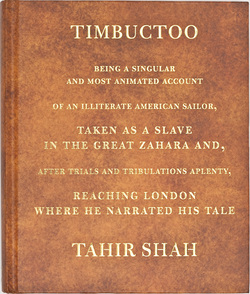 In 2007, we bought a house. As anyone who's ever gone through this will tell you, this is one of the most stressful times in one's life. Months of paperwork, seemingly endless days playing a guessing game of will they/won't they, what ifs and what-nots. When you think you can wait no longer, the house keys arrive allowing you to expel that long bottled-up sigh of relief. Unknown to you the worst is yet to come. We had bought a house but not a new one and so began the journey of refurbishment, of planning permissions, builders, plumbers, electricians and decorators. You name them and we had him/her go through our house. Many tears and cups of tea later and the house was relatively livable and so the family moved in. It was around that time, while on a relaxing trip to the local bookstore that I came across Tahir Shah's 'The Caliph's House'; the true account of the author's move to Casablanca and the relaying of events during the restoration of their property. Problems with our property seemed like a walk in the park compared to what the Shahs had gone through. I was hooked not only by the masterful narration, but also by the gripping tale of the house itself. They had had to do battle against medieval evil spirits for God's sake and here I was crying over a few rotted bricks and collapsed pipes. I had to remind myself over and over that this was a real story, about a real family, in a real country. It was the humour amid the chaos that won me over and when a year later the sequel 'In Arabian Nights' came out I rushed to read it as well. This book brought to light stories of the Tuareg, the Sufi men and other eccentric stories from the Sahara. It is a book that my father-in-law particularly enjoyed which is saying a lot by a man who has read all there is to read by Tahir Shah's father, Idris Shah. And so we arrive to 'Timbuctoo' and it seems only right that Tahir Shah should be the one to tell this story. It is a tale about a tale that takes place close to the author's backyard. Tahir Shah's latest release is based on the true account of the illiterate American sailor, Robert Adams, who is shipwrecked along the African coast and taken as a slave in the Great Zahara and then to the city of 'Timbuctoo'; Three years later he is ransomed to the British Consul and makes his way to London where he tells the horrific tale of his enslavement and captivity. Timbuctoo (also Timbuktu) is a legendary city presumed by Europeans at the time to be made in its entirety of gold and to which expedition after expedition had been sent to retrieve its vast fortune only for the armies to face complete annihilation. When Robert Adams relays his story to The Royal African Committee, his story is not easily believed or received especially that an expedition headed by a Major Peddie has set off for Timbuctoo and large investments are reliant on its success. The narration is marred with suspicion right from the start not only that it is relayed by an American (the British were on the verge of losing the American colony) but also that the accounts relayed by Robert Adams seemed to be contradicting even refuting all that the British knew about Timbuctoo. The historical bit of the book on which 'Timbuctoo' is based upon is fascinating but what Tahir Shah also sheds light on is the state of the Empire at the time of this narrative. The Regency era extending from 1811 when King George III was deemed unfit to rule and his son The Prince of Wales, ruled by proxy until his father's death in 1820 therefore becoming George IV is a time of excess for the aristocracy and Shah manages to exemplify these excesses in the Prince Regent's eccentric demands and disregard for anyone but himself and his pleasures. He also portrays the vast wealth accumulated by the aristocracy and those in connection with them. Yet, underneath all the glitz and glamour of the society's creme de la creme lies squalor, indecency, immorality and filth. Many times in the book as Robert Adams describes the treacherous conditions and hardships of his captivity, we are reminded that human brutality is never far away from home where the desecration of tombs is taking place, the public exhibition of hangings is a much celebrated event to ogle at and public dissections of dead cadavers hoards in the masses. There is also the injustice of imprisonment in places such as Marshalsea where episodes of squalor, filth and injustice are rampant, where there is little regard to human decency. Time and again Robert Adams is shocked to encounter and to re-live such conditions which he thought he had escaped from when a slave in the Zahara not believing that they could be happening in a civilized white Christian society such as England. The novel is gripping and packed full with themes of slavery, adventure, conspiracy, murder, and at its heart is not one but two love stories. The first between Robert Adams and his wife Christina and the other between the English Mr. Cavendish and his cousin Beattie. The novel also reads like a who's who of the Regency era with many actual characters making an appearance in Shah's novel: The botanist Sir Joseph Banks, the writer Jane Austen, Lord Byron, and Lady Caroline Lamb to name a few. This is a fabulous read. Exciting, interesting and fascinating but what makes it that extra bit special is the author's enthusiasm and dedication to the project. This is a novel that inspires hope when it seems that all hope has dried up and it is a true testament to the resilience of the human spirit even when all the odds are stacked against it and yet it fights and yet it endures. This is one adventure not to be missed. To hear it from the lion's mouth as some would say, do check out Tahir Shah's YouTube clip. Click HERE! 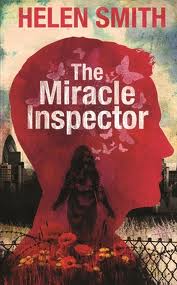 Something terrible has happened to London. Whatever that something is it has stripped London of all that we know it to be in real life. No longer a vibrant multicultural multiparty hub but a city whose inhabitants have finally given in to their fears creating a apocalyptic-style scenario that has turned London and those who live in it dismal, empty and soulless. This is a London where fear of terrorism has won rendering it a cut-off city with grounded planes, ensuring that the only place anyone will go to is a place much like hell once they are whisked away by the authorities 'never to be seen again'. Helen Smith has managed to create a reality where the easy way out solution is key to everything. Paedophilia a scare? Let's shut down schools and libraries so our children are no longer exposed to strangers. Rape on the increase? Lock the women at home, strip them of their right to work and then cover them head to toe when they do venture out. The Arts inflaming hearts and instigating change? Abolish them, hunt down the artists and make sure they are made an example. Now that this is all done, Helen Smith challenges you to think; Safe or sorry? Lucas and Angela are a married couple who live in this new London. Lucas, very much in love with his wife works at the Ministry as a miracle inspector whose job consists of checking out reports of people who say they have witnessed a miracle and validating the authenticity of those claims. Angela is a bored housewife who has hopes and dreams but spends most of her days memorising the long names of dinosaurs from the encyclopedias she salvaged from the local library before it shut down just to get through the mundane task of shaking out the mat and polishing the taps. That is until one day, Lucas's godfather Jesmond, stops by and hands Angela a journal full of poems and letters that provide for a sort of entertainment in her life. Lucas and Angela are both barely in their early twenties and yet life seems to have aged them well before their time. Lucas meets Maureen (a former newsreader) who claims that her daughter Christina is the miracle. The only proof to her claim is that the child only smiles when she likes someone. Lucas introduces his wife to Maureen and her daughter, an unwise move in these terrible times as women are only allowed to associate with female relatives. Things take a different and dangerous turn for Lucas and Angela and their lives are completely changed. This is a very interesting thought-provoking book. A fantastic book club pick. I enjoyed its directness and the power it gives to the reader's imagination to fill in the gaps rendering it a work of horror at times. Although laced with humour this is far from a humorous read. Dark and disturbing where at times survival alone is a miracle in disguise! The print edition of The Miracle Inspector will be published on September 4, 2012 but is currently available as an ebook via The Kindle Store in UK and US. Check out author Helen Smith's website, HERE. 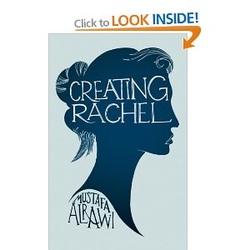 Carlos Castaneda once said “The trick is in what one emphasizes. We either make ourselves miserable, or we make ourselves strong. The amount of work is the same” and it is this realization that Mustafa Alrawi's character Mohammed in 'Creating Rachel' unintentionally stumbles upon after falling madly and hopelessly in love with Rachel, a woman who seems to have no intention of ever loving him back. Mohammed's obsession with gaining Rachel's love is his unraveling and instigates an exploration of his inner self, true character and self worth, challenging his deepest beliefs, rocking him to the very core and ultimately changing his life forever. This is first and foremost a love story, albeit a turbulent one, between the Arab Mohammed, (a romantic, self-proclaimed 'spoilt brat', poet and self-stylized hero) and Jewish Rachel (exotic-looking, young, and damaged), who he meets in a nightclub with a quality that he is "drawn to like a child is simultaneously thrilled and terrified by a ghost story, afraid to go on but unable to stop". And so begins a relationship of sorts whereby Mohammed creates a Rachel of his dreams; a Rachel that in spite of all that she does to him remains beyond reprimand, beyond reproach and ultimately above hatred with Mohammed ultimately professing her to be his soul mate, his savior and his doom. Mohammed is a complex troubled character who decides to write a 'diary of love' which reads like a guide book in how to love, why to love and what love can eventually lead to. It does at times feel like a self-help book in its own right (think Carlos Castaneda, Dale Carnegie) but the story soon overtakes you and this fact becomes irrelevant. The journal alternates between Mohammed actually telling us details of the relationship and then penning letters to Rachel attempting to analyze what happened between them finally letting her know how he honestly feels. Throughout the book, it is Mohammed's voice alone that we hear, his struggle, his plight and after a while the reader will begin to wonder if Mohammed is merely melodramatic and whether things even really happened like he says they did. There are no other voices/opinions other than his own and this one dimensional view of the relationship does slightly detract from the authenticity of Mohammed's story. But we do have to remind ourselves that this is Mohammed's diary after all and as such can only be the way it is. Ramblings of a love-crazed young man who is slighted, wounded and is struggling to regain some of the male pride he feels he may have lost to Rachel along the way. 'Creating Rachel' is a novel of awakenings; an awakening of the heart, an awakening of the mind and soul and a dawning realization of the relevance Arab youth have in the shaping of their future in today's post 9/11 world. Gone are the days pre- 9/11 when all that mattered to Arab youth was being rich, handsome and young. The days when all that mattered was not only where you partied but how hard you went about it. It is an awakening to the realization that some lessons in life can only be learnt the hard way and victory is for those who come out the other side battered perhaps but never beaten. The novel in its Shamanistic undertones aims to highlight the importance of acting on thoughts not just thinking about them, following dreams, letting go, making peace with the inner self and believing in the greatness of personal power. 'Creating Rachel' is Mustafa Alrawi's debut novel and is testament to a writer to be reckoned with who is fresh, exciting and very very capable with an abundance of potential. The novel is highly emotional, engaging and will resonate universally and across the board with anyone who has ever truly fallen in love. A delightful read! About the author: (as from book sleeve) Mustafa Alrawi is a British writer of Iraqi heritage, living in Dubai since 2004. He is a commentator, journalist, and broadcaster and his articles have been published in the Guardian, Independent, Esquire, The Jordan Times, Lebanon's Daily Star, 7Days and The National. In 2003, he traveled to Baghdad and helped launch the first independent English-language newspaper after the fall of Saddam Hussein. He was also the host of the radio show Al Majlis on Dubai Eye 103.8. Mustafa has written the one-act plays Out There and This Place about his experiences in the Middle East and is currently working on a series of children's stories. He is married to Rana with whom he has one son, Taimoor. Check out the author's website HERE. |
Categories
All
|

 RSS Feed
RSS Feed
